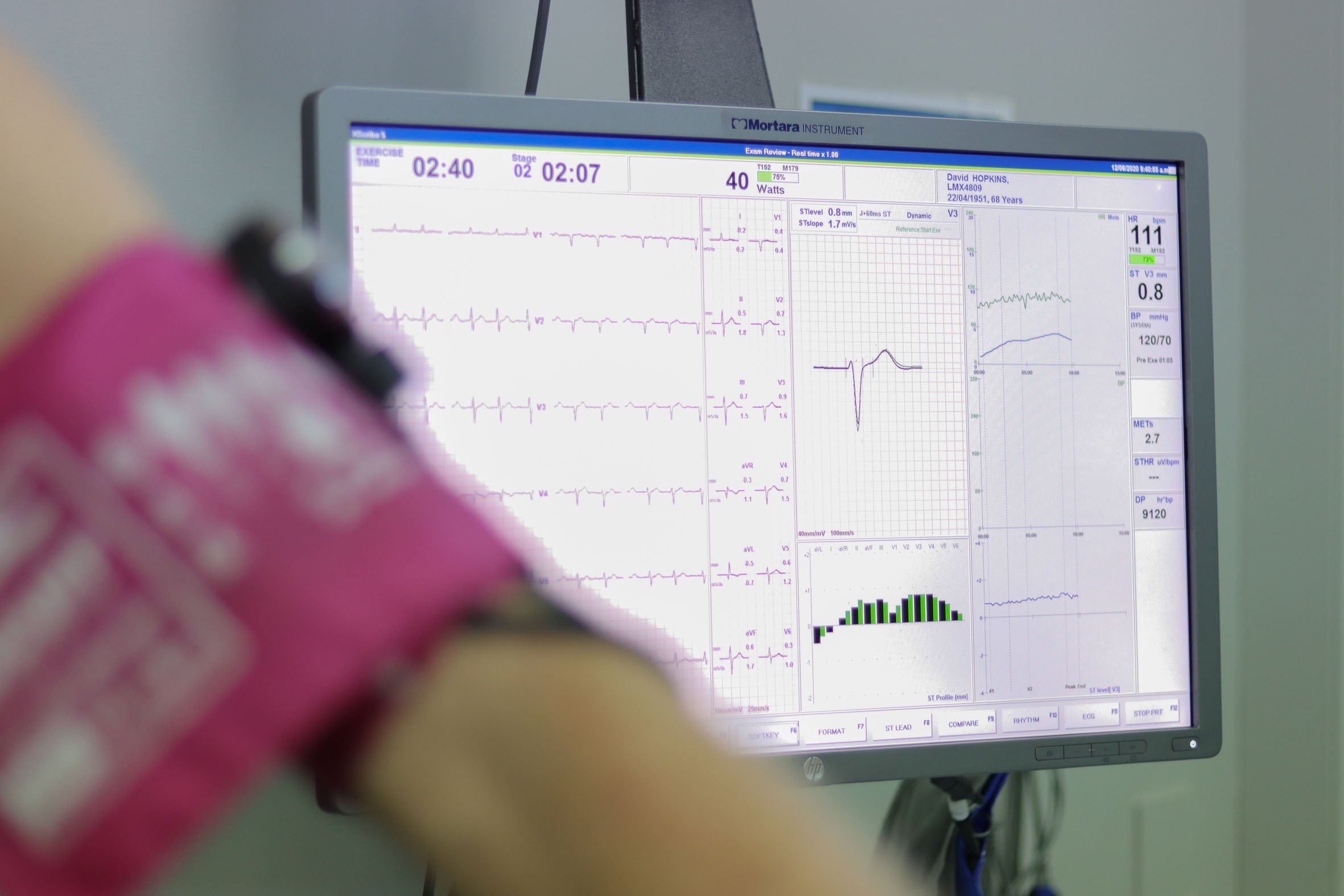EXERCISE TOLERANCE TEST WITH ECG
An exercise tolerance test with ECG (Stress ECG test) is normally done by cardiologists for diagnostic purposes as part of assessing heart electric functionality (e.g., heart rate, rhythm) and signs of disease (e.g., Axis abnormalities, Hypertrophy, and Infarction). It involves a 12-lead ECG and an exercise tolerance test on either a cycle ergometer or treadmill.
We use the 12-lead ECG test in conjunction with other measurements (e.g., RPE, dyspnea, Angina scales and blood pressure responses) to identify exercise symptom limits. A symptom limits is the point where – based on the above-mentioned measurements – we can see that the body is starting to struggle physiologically with the exercise. We use those points to set exercise intensity targets. We generally do our stress ECG test on a cycle ergometer but does use the treadmill for specific situations.
We do a 12-lead stress ECG test in the following circumstances:
To prescribe safe and effective exercise programmes for medically referred patients.
Screening patients who manifest changed responses (e.g., Perceived exertion, Dyspnea, Angina, BP-responses, Heart rhythms) during and after exercise while we work with them.
‘Warranty of Fitness’. Some professions (e.g., Police officers, Fire brigade, and truck drivers) are required to pass a yearly fitness test. We do a baseline stress ECG test on such individuals and then train them specifically for their ‘WOF’.
To track heart health over time. A baseline ECG improve the diagnostic accuracy of a stress ECG substantially. Patients who went through our 10-week programme or who sign-up as private patients find value in a quick check-up on a yearly basis to compare ECG results with their baseline data. It does not replace a medical check-up or visit to the cardiologist but do provide confirmation that everything is still in order with reference to their heart’s response on exercise or that there is urgent need to forward their next medically check-up (e.g., the baseline ECG changes). We send the report to the patients GP and Cardiologist, and we have helped to identify numerous individuals in need for life saving cardiac procedures.
Safety checking of individuals engaging in high intensity sports (e.g., cyclists, long distance running squash, etc.). This might include a CPET test in conjunction with a stress ECG. We often help runners and cyclists with their training intensities to optimize safety and performance effectiveness. It is not uncommon for people to start manifesting irregular heart rhythms during training as they age. Unaware of these changes some of them push themselves to hard during training.
The exercise tolerance test with 12-lead ECH includes:
Height and Weight
Body composition (e.g., skinfolds, waist and hip circumference and girths)
Lung Function (spirometry) if required. We assess expiration, lung volume and inspiration.
Resting ECG
Exercise 12 Lead ECG Test with Blood Pressure Monitoring. The test could include direct cardiopulmonary assessment if it would add value to the assessment.
Cardiologist and GP report on ECG results
Please enquire for pricing:
Email: clinic@orakinetics.co.nz | Phone: Lukas 020 4065 6902


